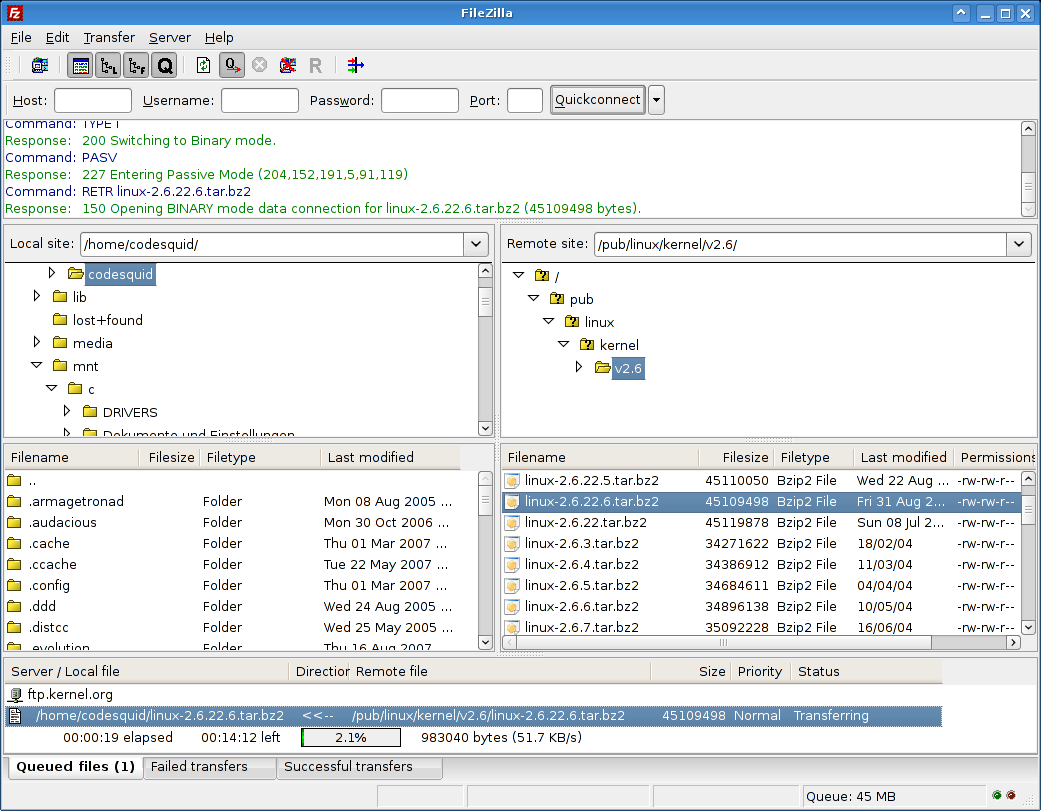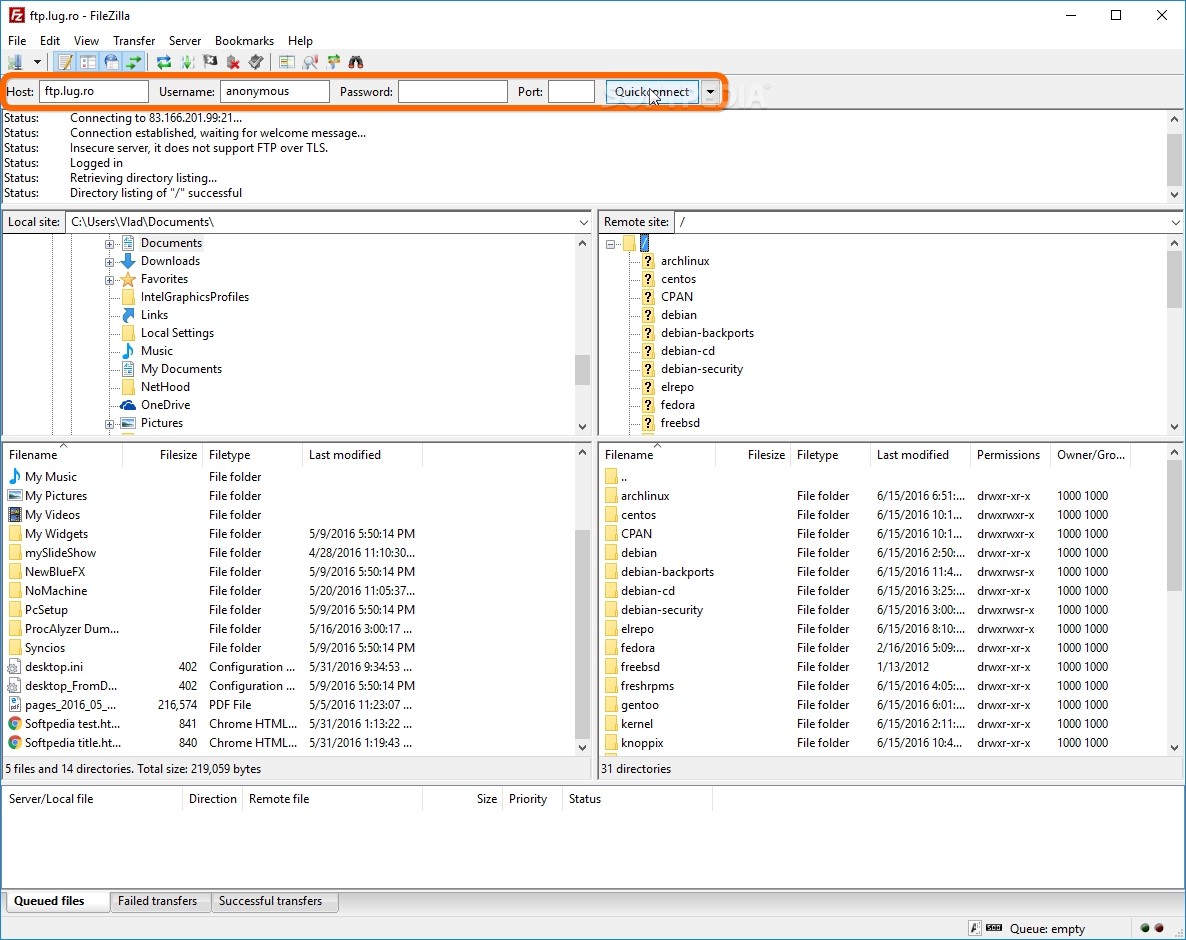FileZilla & FilmyZilla: Downloads, Errors & Industry Impact!
Tired of endless searches yielding no results? You're not alone; the digital landscape can often feel like a labyrinth of dead ends, leaving you empty-handed and frustrated. The quest for specific information or resources online can be a surprisingly challenging endeavor, often leading to the dreaded "We did not find results for:" message.
This familiar refrain, coupled with the generic "Check spelling or type a new query," can be incredibly disheartening. It suggests that the information you seek is either nonexistent, hidden behind a wall of poor indexing, or perhaps, simply misspelled. The internet, despite its vastness, sometimes feels remarkably small when you're faced with such limitations. But beyond these search failures, the internet is a complex ecosystem of tools and platforms designed to streamline various tasks, from managing files to accessing entertainment. Two prominent examples of this are Filezilla, a versatile file transfer protocol (FTP) client, and Filmyzilla, a controversial website associated with the unauthorized distribution of copyrighted films.
| Topic | Filezilla and Filmyzilla: A Comparative Overview |
| Filezilla |
|
| Filmyzilla |
|
| Reference | Filezilla Official Website |
Filezilla Pro, for instance, stands out as a robust and dependable solution for managing file transfers. It supports a wide array of protocols, including FTP, FTPS, SFTP, and even integrates with cloud storage services such as Amazon S3, Backblaze B2, Box, Dropbox, Google Cloud Storage, Google Drive, Microsoft OneDrive, Microsoft Azure Storage, OpenStack Swift, and WebDAV. This versatility makes it an invaluable tool for professionals and individuals alike who require a secure and efficient way to move files between their local machines and remote servers.
The intuitive tabbed user interface of Filezilla Pro, available in over 50 languages, further enhances its accessibility and usability. The site manager feature allows users to store connection details and logins, streamlining the process of connecting to frequently accessed servers. Filezilla itself, even in its non-pro version, is a small but powerful FTP client packed with features. Its explorer-style interface provides a clear and organized view of both local and remote file systems, making navigation and file management a breeze. Dynamic tools further simplify the process of moving files, ensuring a seamless experience.
The availability of Filezilla clients for Windows, Linux, and macOS underscores its commitment to cross-platform compatibility. Users can download Filezilla Server 1.10.3 for Windows (64bit x86) to set up their own FTP server, enabling them to share files with others securely. On the other end of the spectrum lies Filmyzilla, a name often associated with copyright infringement and the illegal distribution of movies and TV shows. These websites, which operate outside the bounds of copyright law, upload high-definition links to recently released films and television programs, making them available for download without payment.
The proliferation of sites like Filmyzilla has a significant impact on the income of the film industry. By offering free access to copyrighted content, these platforms undermine the traditional revenue streams that filmmakers and studios rely on. As users opt to download movies from Filmyzilla instead of purchasing tickets or subscribing to legitimate streaming services, the financial losses for the entertainment industry can be substantial. The issue is further complicated by the fact that these sites often operate in legal gray areas, making it difficult for copyright holders to take effective action against them. While efforts are constantly being made to shut down such websites, they often reappear under different names or domains, creating a cat-and-mouse game between copyright enforcers and those who profit from unauthorized distribution.
- Filmyzilla Bollywood Hollywood Movie Updates News More
- Squid Game Deadly Prize Awaits Season 2 Release Details
Adding to the complexity is the global nature of the internet. A website hosted in one country may be accessible to users in another, even if the content it provides violates the laws of the latter. This jurisdictional challenge makes it difficult to enforce copyright laws across borders and requires international cooperation to effectively combat online piracy. Furthermore, the technology used to distribute copyrighted content is constantly evolving. Peer-to-peer file-sharing networks, torrents, and streaming services have all been used to facilitate the illegal distribution of movies and TV shows. As new technologies emerge, copyright holders must adapt their strategies to protect their intellectual property.
The consequences of downloading copyrighted content from sites like Filmyzilla extend beyond the financial impact on the entertainment industry. Users who access these sites risk exposing their devices to malware, viruses, and other security threats. Many of these platforms are riddled with malicious software that can compromise personal data, steal financial information, or even take control of a user's computer. Furthermore, individuals who download copyrighted content may face legal repercussions, including fines and lawsuits. While the risk of prosecution may vary depending on the jurisdiction, it is important to be aware of the potential consequences of engaging in online piracy.
The rise of streaming services has provided a legitimate alternative to downloading copyrighted content from sites like Filmyzilla. Platforms such as Netflix, Hulu, Amazon Prime Video, and Disney+ offer a vast library of movies and TV shows for a reasonable monthly fee. These services provide a convenient and legal way to access entertainment content without the risks associated with piracy. Moreover, they often offer high-quality streaming and download options, ensuring a superior viewing experience compared to the often-compromised quality of pirated content.
The availability of affordable and convenient streaming services has undoubtedly reduced the appeal of illegal downloading for many users. However, the problem of online piracy persists, driven by factors such as the desire for free content, the availability of niche or hard-to-find titles, and the continued existence of websites like Filmyzilla. Addressing this challenge requires a multi-faceted approach that includes stronger copyright enforcement, increased public awareness of the risks and consequences of piracy, and continued innovation in the delivery of legitimate entertainment content.
The ease with which users can configure Filezilla is also noteworthy. The phrase "Tr\u00e8s facile \u00e0 utiliser, il permet de configurer rapidement" highlights its user-friendly design, appealing to both novice and experienced users. This ease of use, combined with its powerful features, makes Filezilla a popular choice for managing file transfers. However, its crucial to distinguish this legitimate and useful tool from the problematic realm of websites like Filmyzilla.
In essence, Filezilla and Filmyzilla represent two vastly different aspects of the digital world. One is a legitimate and valuable tool for managing files, while the other is a source of copyright infringement and potential security risks. Understanding the distinction between these two entities is essential for navigating the online landscape responsibly and ethically. It's a reminder that while the internet offers a wealth of resources and entertainment, it's important to be mindful of the legal and ethical implications of our online activities. Choosing legitimate sources of content and utilizing secure file transfer methods not only supports creators and protects their intellectual property but also safeguards our own devices and personal information.
The contrast between Filezilla and Filmyzilla also highlights the ongoing tension between accessibility and copyright protection in the digital age. While the internet has made it easier than ever to access information and entertainment, it has also created new challenges for copyright holders seeking to protect their works. The development of technologies like file-sharing networks and streaming services has further complicated the issue, blurring the lines between legitimate use and copyright infringement. Finding a balance between these competing interests is crucial for fostering a healthy and sustainable digital ecosystem.
Ultimately, the responsible use of the internet requires a critical understanding of the tools and platforms available to us. While Filezilla offers a secure and efficient way to manage files, Filmyzilla represents a risky and unethical approach to accessing entertainment content. By choosing legitimate sources, respecting copyright laws, and protecting our own security, we can contribute to a more responsible and sustainable digital future. The constant reporting about websites that allow users to watch the latest movies and TV shows without payment, specifically mentioning the upload of HD links, is a worrying trend that needs to be addressed.
The existence of sites like Filmyzilla reflects a broader issue of accessibility and affordability in the entertainment industry. For many individuals, the cost of subscribing to multiple streaming services or purchasing movie tickets can be prohibitive. This economic barrier can drive some users to seek out free, albeit illegal, alternatives. Addressing this issue requires exploring new models for content distribution that are both affordable and sustainable. Options such as ad-supported streaming services, lower-priced subscription tiers, and flexible rental options could help to bridge the gap between accessibility and copyright protection.
Furthermore, education plays a crucial role in combating online piracy. Many users may not fully understand the legal and ethical implications of downloading copyrighted content. By raising awareness of the risks associated with piracy and promoting the benefits of supporting legitimate creators, we can encourage more responsible online behavior. This education should target not only individual users but also schools, libraries, and other institutions that provide internet access.
The fight against online piracy is an ongoing process that requires a collaborative effort from copyright holders, technology companies, governments, and individual users. By working together, we can create a digital environment that respects intellectual property rights while also providing affordable and accessible entertainment options for everyone. The very Korean Text \ud30c\uc77c\uc9c8\ub77c \ubb34\ub8cc ftp \ud55c\uae00\uc9c0\uc6d0, \uc708\ub3c4\uc6b0, \ub9e5os, \ub9ac\ub205\uc2a4, \uc11c\ubc84 ftp \ub2e4\uc6b4\ub85c\ub4dc \uc81c\uacf5, \uc0ac\uc6a9\ubc95, \uc790\uc8fc\ubb3b\ub294\uc9c8\ubb38 signifies the availability of Filezilla in multiple languages, highlighting its global reach and utility as an FTP client.
In conclusion, while the frustration of "We did not find results for:" can be a common experience online, it's important to remember that the internet offers a vast array of tools and resources for managing information and accessing entertainment. By using these tools responsibly and ethically, we can contribute to a more sustainable and equitable digital future. The key takeaway is to differentiate between legitimate platforms like Filezilla, which facilitates secure file transfers, and illegal websites like Filmyzilla, which undermines the film industry and poses risks to users.
The impact of sites like Filmyzilla extends beyond mere financial loss for the film industry. It affects the livelihoods of countless individuals working in the entertainment sector, from actors and directors to writers, editors, and crew members. When films are illegally downloaded, these individuals are deprived of their rightful compensation, potentially impacting their ability to continue creating content. Furthermore, the availability of pirated content can discourage investment in new film projects, ultimately stifling creativity and innovation in the industry.
The challenge lies in striking a balance between protecting intellectual property rights and ensuring access to information and entertainment for all. A purely restrictive approach to copyright enforcement can be counterproductive, potentially driving users towards illegal sources. A more effective strategy involves a combination of measures, including education, affordable and accessible legal alternatives, and targeted enforcement against the most egregious offenders. This approach recognizes that online piracy is a complex issue with no simple solution.
It is also crucial to address the underlying motivations that drive users to seek out pirated content. For some, it may be a lack of awareness of the legal and ethical implications. For others, it may be a matter of convenience or necessity. By understanding these motivations, we can develop more effective strategies for promoting responsible online behavior. This may involve creating more user-friendly interfaces for legal streaming services, offering more flexible pricing options, or providing access to educational resources on copyright law.
The dynamic tools offered by Filezilla stand in stark contrast to the illicit operations of Filmyzilla. While Filezilla empowers users to manage their files efficiently and securely, Filmyzilla engages in the unauthorized distribution of copyrighted material. This contrast highlights the importance of choosing the right tools for the job and being mindful of the ethical implications of our online activities. By opting for legitimate software and content sources, we can support creators, protect our own security, and contribute to a more responsible digital ecosystem.
The issue of online piracy is not limited to the film industry. It affects music, software, books, and other forms of creative expression. In each case, the unauthorized distribution of copyrighted material undermines the rights of creators and threatens the sustainability of the creative industries. Addressing this issue requires a holistic approach that considers the interests of all stakeholders, from creators and copyright holders to consumers and technology companies.
As technology continues to evolve, the challenges of copyright enforcement will only become more complex. New technologies such as artificial intelligence and blockchain have the potential to both facilitate and combat online piracy. It is essential to stay abreast of these developments and adapt our strategies accordingly. This requires ongoing dialogue and collaboration between all stakeholders to ensure that copyright laws remain relevant and effective in the digital age.
Ultimately, the responsibility for combating online piracy rests with each individual user. By making informed choices about the content we consume and the tools we use, we can contribute to a more responsible and sustainable digital future. This means supporting creators by purchasing their works through legitimate channels, avoiding websites that offer pirated content, and reporting copyright infringement when we encounter it. By taking these steps, we can help to protect intellectual property rights and ensure that creators continue to be rewarded for their efforts.
The debate surrounding online piracy often revolves around the question of access versus ownership. In the traditional model, creators are compensated for their works through sales or licensing fees, which grant users the right to access and use the content. However, the digital age has challenged this model, with many users arguing that information and entertainment should be freely available to all. This debate raises fundamental questions about the nature of intellectual property rights and the role of copyright law in a digital world.
Finding a resolution to this debate requires a nuanced approach that acknowledges the legitimate interests of both creators and users. While creators have a right to be compensated for their works, users also have a right to access information and entertainment without facing unreasonable restrictions. A balanced approach would seek to create a system that protects intellectual property rights while also promoting access and innovation. This may involve exploring alternative licensing models, such as creative commons licenses, or developing new technologies that facilitate the secure distribution of copyrighted content.
The ease of use associated with tools like Filezilla, indicated by phrases such as "Tr\u00e8s facile \u00e0 utiliser, il permet de configurer rapidement," is a testament to the importance of user-friendly design in the digital age. When technology is intuitive and accessible, it empowers users to achieve their goals more efficiently and effectively. This principle applies not only to software like Filezilla but also to online platforms, streaming services, and other digital tools. By prioritizing user experience, we can make technology more accessible to a wider audience and promote greater participation in the digital world.
In contrast, websites like Filmyzilla often prioritize quantity over quality, offering a vast selection of movies and TV shows with little regard for copyright laws or user safety. This approach can create a misleading impression of abundance, while in reality, it undermines the creative industries and exposes users to potential risks. By choosing legitimate sources of content, we can support creators, protect our own security, and ensure that we are accessing high-quality entertainment.
The availability of Filezilla clients for various operating systems, including Windows, Linux, and macOS, underscores the importance of cross-platform compatibility in the digital age. In a world where users rely on a variety of devices and operating systems, it is essential for software and online platforms to be accessible across different platforms. This ensures that users can access the tools and content they need regardless of the device they are using. Cross-platform compatibility promotes inclusivity and empowers users to participate fully in the digital world.
The dynamic tools offered by Filezilla help users move files between their local machines and web servers effortlessly. This functionality is particularly valuable for web developers, designers, and other professionals who work with online content. By providing a seamless file transfer experience, Filezilla streamlines the process of building and maintaining websites, enabling users to focus on their creative work rather than struggling with technical issues. This efficiency is a key factor in Filezilla's popularity and widespread use.
The existence of websites like Filmyzilla highlights the need for greater collaboration between copyright holders, technology companies, and internet service providers. By working together, these stakeholders can develop more effective strategies for combating online piracy and protecting intellectual property rights. This may involve implementing technical measures to detect and prevent the distribution of copyrighted content, providing educational resources to users, and pursuing legal action against the most egregious offenders. A collaborative approach is essential for creating a sustainable digital ecosystem that supports both creators and consumers.
As the digital landscape continues to evolve, it is important to stay informed about the latest trends and challenges in copyright law and technology. By staying informed, we can make more responsible choices about the content we consume and the tools we use. This includes being aware of the risks associated with online piracy, understanding the legal and ethical implications of downloading copyrighted content, and supporting creators by purchasing their works through legitimate channels. By taking these steps, we can contribute to a more responsible and sustainable digital future.
- Filmyzilla Filmywap Free Movie Downloads Is It Safe
- Sonic Movie 3 Filmyzilla Download Where To Watch Guide

SCARICARE FILEZILLA

Filezilla Logo / Software / Logonoid

FileZilla Explained Usage, Video and Download